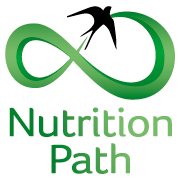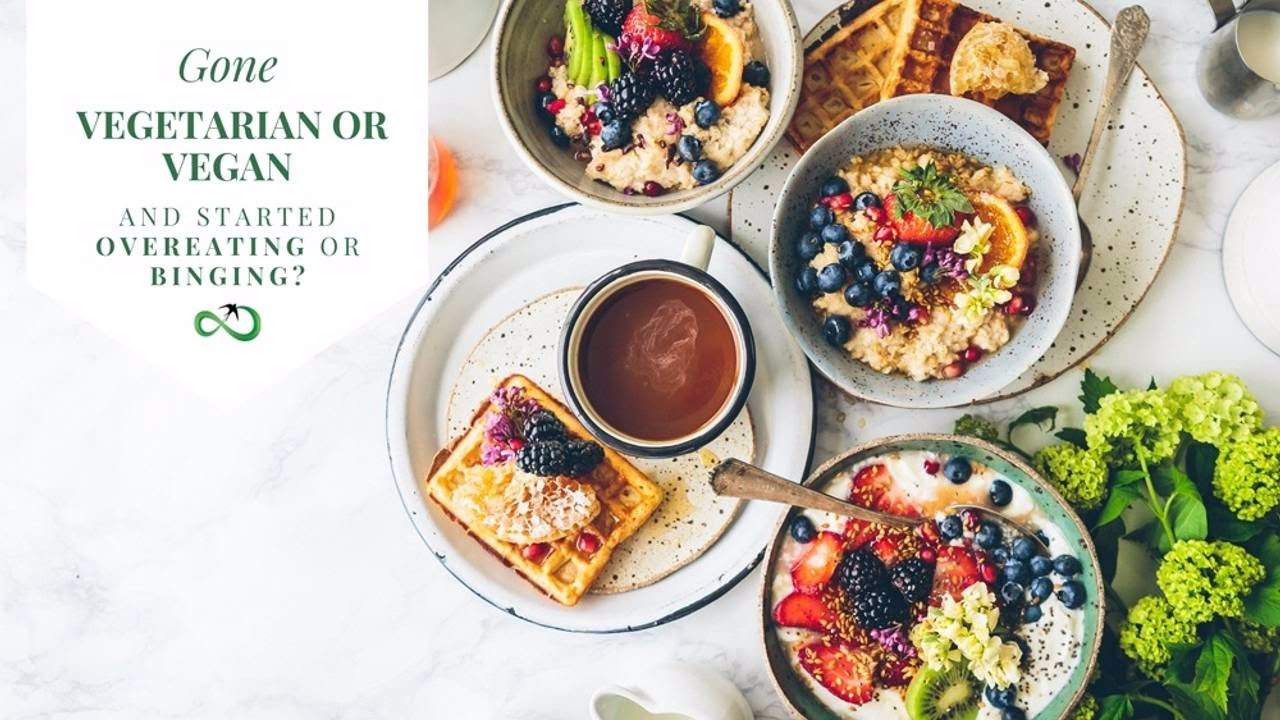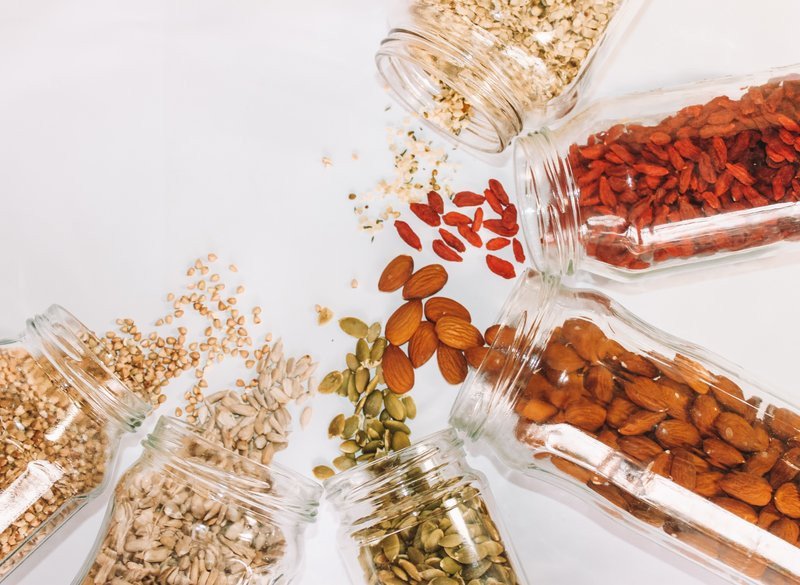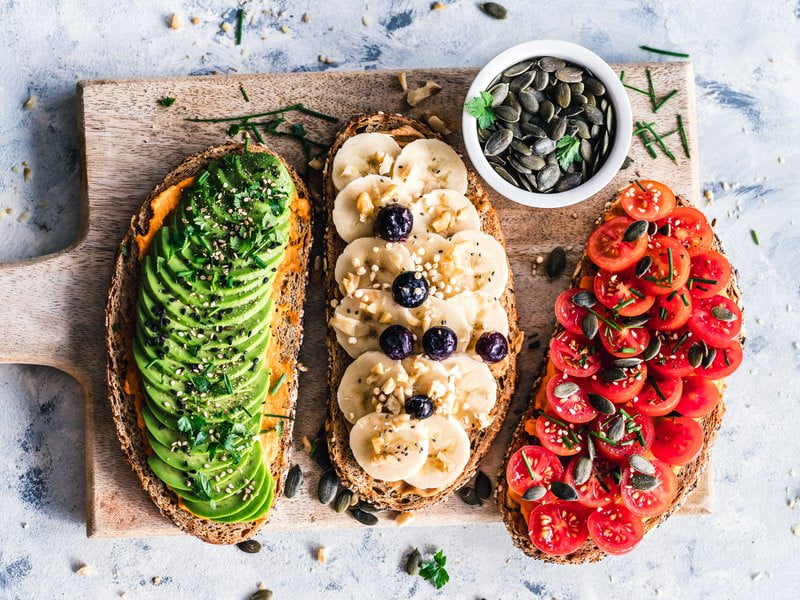A few years ago I visited VegFest- a vegan festival that promotes all sorts of alternatives and innovation in the industry and gets people inspired to do good for their health and the environment. Even though I am not vegan, I certainly love fairs like this one, that inspire me to think outside the box and stay open to alternatives.
I have seen a queue of people, that was certainly getting longer in a few hours I spent there.
Could you guess what it was?
I was convinced that perhaps it’s a vegan super shake that involves all the necessary nutrients or a vegan cheese that tastes exactly like West Country cheddar.
And was I wrong!
It was HOT DOGS. Yes, vegan hot dogs.
There’s an assumption that if you go vegetarian or vegan, you have a much healthier diet than most people and that it’s only a question of time when you may wake up with a ‘surprise’ six pack.
Sadly, it cannot be further from the truth in so many cases.
No doubt I have seen vegans that are extremely balanced, vital and fit, yet I have also witnessed vegans who most certainly feel unhealthy, lacking energy and are truly struggling with their health and weight for years. Not to mention the overwhelming sugar cravings, binging ad feeling out of control around food.
#1 biggest mistake that I see people do when going vegetarian or vegan is overloading diet with sugar and processed foods. Surprisingly, that’s not the only reason why sugar cravings and binging might increase when going vegetarian or vegan.
Here are some common questions and dilemmas answered to help you create the food habits, that are good for your body and the planet, whichever choice you make.
Where are the cravings coming from?
The word cravings gets thrown around left, right and centre and I bet that three different people, asked what that is, will give different answers.
There are two types of cravings: physical and emotional. Physical cravings arise because of physical imbalance, often closely linked to blood sugar imbalance. There’s a huge list of factors that may imbalance blood sugar, including sugar, processed foods, nutritional deficiencies, caffeine, alcohol, tiredness, stress and etc. Wonder why you never crave a delicious salad with tofu and seeds when you’re tired or stressed?
So simply put, if you are exhausted after a whole day’s work, missing some extra protein or had too much cake in the past two weeks, your body’s fuel tank is running empty and gives you cravings for instant, quick energy. And what would that be?
You guessed it- office cookies, a double latte and chocolate bars.
The body is pretty clever and points you straight toward the quick energy that is sugars, simple carbs and caffeine- quickest energy that will spike (and then crash) your energy.
The same can happen if your diet is missing some key macro- and micro- nutrients, like protein, magnesium or B vitamins (more on that later). So often missing protein or B12 may disguise itself as sugar and caffeine cravings, doesn’t make sense, right?
If I go vegan, I just need to cut out animal products, right?
Not quite. If you’re cutting something out of your diet, it certainly needs to be replaced with something else that has the same (or very similar) nutritional value and nutrient sources.
There are a handful of nutrients, that are either impossible or really tricky to get on a vegan diet, so it requires meticulous planning or supplementation to make sure you’re getting all that your body needs.
For example, B12 (cobalamin) is a nutrient that’s involved in the metabolism of every cell in the human body, is responsible for neurological function and red blood formation above all other functions. B12 is the only vitamin, that is only present in animal products (meat, fish, seafood, eggs, dairy) and removing those completely will compromise B12 intake.
Therefore vegans in the know take a B12 supplement, to make sure bodily functions run smoothly. It may take up to 2-8 years for body’s stores to run out and deficiency to become apparent, so the absence of symptoms straight away doesn’t mean that the body is getting enough.
Omega-3 is another perfect example to illustrate this. Omega-3 an ‘essential fat’ (meaning that the body cannot make it), which is the most potent anti-inflammatory agent, that is also responsible for a variety of functions, such as cognitive support, join health and cell division (think anti- ageing).
Most potent omega- 3 is abundantly found in fatty fish, like SMASH (salmon, mackerel, anchovies, sardines and herring). Would seem pretty simple to swap that out for plant sources, such as flax seeds, chia seeds, hemp, walnuts and algae- if only it was that simple.
What often gets lost in product marketing and ‘googling the info’ for own health research is that although plant sources ARE high in omega- 3, they are also low in bioavailability. Meaning that although plant sources are potent in omega-3’s, the body is unable to convert adequate quantity for body’s needs. And due to structural differences it converts even less of it for women.
There are plenty of processes that happen ‘behind the scenes’ and removing a whole food group from the diet has to come with thorough research and advice from professionals. Sadly, it’s not as simple as just removing animal products and hoping for the best- the choices have to be accurately informed. Because at the end of the day, if we cannot save ourselves, we cannot save the world.
Am I getting enough protein?
I bet that if you’ve gone vegetarian or vegan, you are really fed up of hearing about protein. Probably all your family and friends showered you with ‘But what do you do for protein?’ question many many times.
Yes, there is protein in nuts, seeds and beans, yet the sources are not always sources of the ‘complete’ protein or you might have to eat massive portions of the foods just to hit the daily requirement (3 bowls of beans for dinner, anyone?).
This is often one of the first things I look at when analysing food diaries of my vegetarian/ vegan clients and often is a key reason why energy is sluggish, moods are low and cravings are high. Sounds familiar?
So if you don’t fancy having tofu and tempeh with each meal (and I certainly do not recommend it), than get creative by adding some extra protein with your meals. I love using vegan protein powders to boost my breakfast (porridge or overnight oats) and snacks (vegan protein shake, with coconut yoghurt, in a smoothie).
Vegan sugary food swaps
In cave man times sugar was pretty hard to come by- a berry tree there and there at the best. Sadly now, sugar is everywhere you turn and is added to foods that we don’t know about. So to keep within your daily requirement and keep the sugar cravings in check, stick to purposefully choosing some savoury alternatives or swaps, instead of snacking on sugar.
Here are some ideas:
- Swap daily cereal bars and fruit and nut bars for an afternoon snack for a portion of olives and oatcakes
- Swap daily handfuls of trail mix (if high in raisins and dried fruit) to an apple/ pear with nut butter
- Swap a shop-bought smoothie to a bottle of fermented kombucha or water kefir
It’s a good idea to ditch processed foods and stick to easy, delicious and natural snack options. Rule of thumb- if you can’t pronounce it, don’t eat it!
How about fruit?
I get asked if eating fruit is ‘good’ all the time, because there’s a general concern that fruit ‘isn’t healthy’ due to its high sugar content.
Fruit is extremely beneficial for us as it has a range of vitamins, minerals and antioxidants that support absolutely every system in the body. It is also the antioxidants and other nutrients that support the sugar in fruit, so it does not affect our blood sugar balance like eating a bar of chocolate would. Meaning- due to its natural ingredients eating fruit is more balanced than having products, that have added pure sugar.
However, even too much of a good thing isn’t so good after all- you may have seen vegan recipes that require heaps of dried dates and bananas. And just that by itself can create extreme cravings for more.
Stick to maximum of 2 portions of fruit per day, making sure that variety is key, rather than just having your daily banana and apple. Our bodies thrive on variety.
With the endless sea of information available online, it can often be tricky to listen to your own body. Especially if your body has been exposed to way too much sugar, as it may be sending you false signals. So the best way to make sure that you are doing the best you can for your body and the planet, consult a nutrition professional that you trust and keep your peace of mind.





